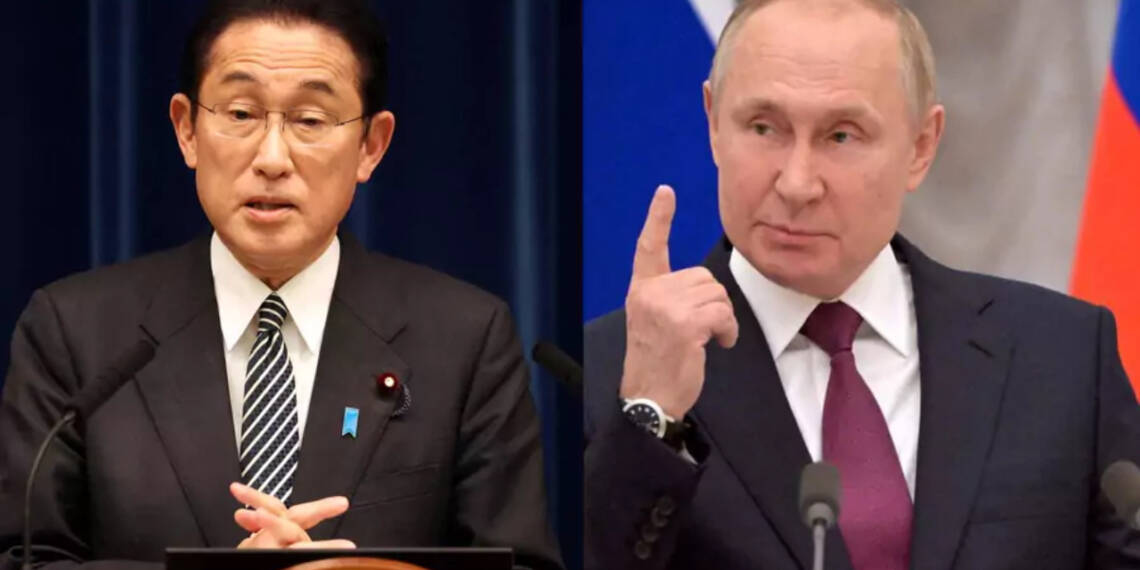When it comes to idiocracy, Japanese PM Fumio Kishida may take the cake. For the last eight months, the Japanese PM has expressed his profound allegiance to the United States and NATO in the Ukraine war.
In an unexpected turn of events, Kishida became one of the most outspoken leaders in criticizing Russia in the war. Tokyo joined partners and like-minded nations in slapping tough sanctions on Moscow, while also opening its doors to Ukrainian refugees and sending much-needed defense supplies such as bulletproof vests and drones to the war-torn country. Tokyo even voted against Russia at the United Nations. However, everything comes at a cost, and the cost for Japan was huge inflation combined with a weak Yen. Japan which is considered an economic juggernaut of the Indo-pacific is on the verge of derailment and only the Japanese authorities are to be blamed for it.
Commodity prices are rising in Japan at a rate that has never been seen before and the Yen has lost more than a fifth of its value against the dollar this year, which has prompted government intervention to support the currency. Due to the substandard decisions of the Kishida government, Japan’s core consumer prices increased by 3.0% in September, which is the highest since 2014. A majority of experts predicted that Japan would continue its aggressive monetary easing at least into the second half of 2023, but, that wouldn’t be sufficient to save the downfall of its economy.
Now, in their latest bid to cushion the fall of the yen, Japan has decided to inject a $200 billion stimulus into its economy.
A $200 billion injection
According to a report by the Economic times, Japanese authorities have announced that Tokyo would spend $200 billion as an economic stimulus package meant to tame inflation and cushion the economic blow from a rising energy crisis. The government statement came hours after the central bank that is, the Bank of Japan maintained ultra-low interest rates, sending a dual message that Tokyo will keep injecting significant fiscal and monetary stimulus into the third-largest economy of the world even as other economies tighten their policies.
Reportedly, the fiscal spending under the package will total 39 trillion yen ($260 billion), funded by an extra budget of 29.6 trillion yen ($201 billion). The spending is expected to boost growth by 4.6 percent. The stimulus package also includes major subsidies for households to curb the rising energy crisis, which are largely seen as an attempt by Kishida to lift his plunging popularity.
The public approval of the Japanese PM had hit a peak of nearly 70 percent in May. But recent polls by Japanese media suggest it has since collapsed to 38 percent. All in all, the Economic package has an overall scale of $490 billion, which is undoubtedly one of the largest in the history of Japan. But, here a question arises.

How come the state of the Japanese economy, which is the third largest economy of the globe suddenly became so volatile? Well, most of the global experts would cite, the difference between the US’s and Japan’s interest rates. Yet, the real reason is somehow Kishida’s absurdity to lock horns with Russia.
Read More: Kishida is literally begging before Vladimir Putin for Russian gas, but it’s too late now
Kishida’s no love lost for Russia!
As a repercussion of the war, half of the Japanese companies reported a severe impact on supply chains, which meant that the consumer demand of the nation was all set to get hindered. Ideally, in such a situation, nations vow to adopt a free independent policy, but, Kishida did the exact opposite.
The Japanese leader singlehandedly pushed Japan-Russia relations “to their worst state” in a few years. Shinzo Abe spent his tenure in office mending ties with Russia, but, all of this was foolishly undone by the current Kishida administration.
Japan was among the first nations to vote for suspending Russia’s UNHRC Membership. Furthermore, Kishida had officially stated, “Japan was ready for a strong response that could include sanctions on Russia,”Japanese Prime Minister also declared a ban on Russian coal imports despite Japan’s enormous reliance on Russian coal.
On the subject of alternatives, Kishida stated that Japan will quickly obtain alternative energy supplies and steadily cut imports, reducing its energy-dependent on Russia. Though, the motion failed terribly. Japan’s important projects with Russia like Sakhalin 1 and 2 pipelines also became a major hurdle for Japanese gas imports. Industries like paper, gas, and EV were hindered due to Tokyo’s own self-goal over the Russia-Ukraine crisis.
Read More: Kishida’s Russia policy will be the end of him
Japan has cost $490 billion as a result of its single vote against Russia. Despite the Bank of Japan’s repeated warnings that Kishida’s administration must change course, if it wants to keep the country stable, Kishida paid no heed to them. Now, Japan is on the verge of an economic slowdown and a recession, for it, not Russia, or USA, only Kishida is to be blamed.







